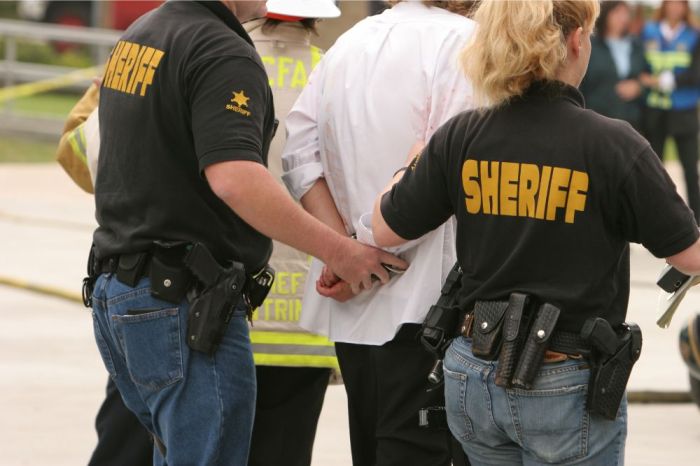Orange DUI lawyer, a crucial resource for anyone facing DUI charges in Orange County, California, offers expert legal guidance and representation to navigate the complex legal system. Understanding the nuances of DUI laws and potential consequences is essential, and having a skilled attorney by your side can make a significant difference in the outcome of your case.
This comprehensive guide delves into the intricacies of DUI law in Orange County, highlighting the importance of legal representation, exploring common defenses, and outlining the legal process from arrest to potential outcomes. We will also provide valuable insights on how to find a qualified DUI lawyer and access essential resources and support.
Understanding the Legal Landscape

Navigating the legal complexities of a DUI charge in Orange County, California, can be daunting. Understanding the specific laws and potential consequences is crucial for making informed decisions and protecting your rights. This section provides a comprehensive overview of California’s DUI laws, highlighting key penalties, fines, and the specific challenges faced in Orange County.
California’s DUI Laws
California’s DUI laws are comprehensive and stringent, aiming to deter drunk driving and ensure public safety. The legal definition of DUI in California is driving under the influence of alcohol or drugs, to the point where your ability to drive safely is impaired.
- Blood Alcohol Concentration (BAC) Limits: The legal BAC limit for drivers over 21 years old is 0.08%. For drivers under 21, the limit is 0.01%.
- Penalties: DUI convictions can lead to a range of penalties, including:
- Fines: ranging from $390 to $1,000, depending on the severity of the offense and prior DUI convictions.
- Jail time: up to six months for a first-time offense, and up to one year for subsequent offenses.
- License suspension or revocation: ranging from a few months to a lifetime, depending on the severity of the offense and prior convictions.
- Mandatory DUI classes: to address alcohol and drug abuse issues.
- Vehicle impoundment: for a minimum of 30 days for a first-time offense, and for a longer duration for subsequent offenses.
- Ignition interlock device: required for a specified period, preventing the vehicle from starting if the driver’s BAC is above the legal limit.
- Increased insurance premiums: as a result of the DUI conviction, which can significantly impact your finances.
Challenges of DUI Cases in Orange County, Orange dui lawyer
Orange County is known for its strict DUI enforcement, making it particularly challenging to navigate DUI cases in this region.
- Aggressive Prosecution: The Orange County District Attorney’s Office is known for its aggressive approach to DUI cases, often seeking the maximum penalties allowed by law. This can lead to more difficult negotiations and higher stakes in plea bargaining.
- Sophisticated Law Enforcement: Orange County has a highly trained and experienced law enforcement force, equipped with advanced technology and specialized DUI units. This can make it more difficult to challenge the evidence presented against you.
- Complex Legal Procedures: The legal procedures for DUI cases in Orange County can be complex and time-consuming, requiring specialized knowledge and experience to navigate effectively. This can include understanding the rules of evidence, the intricacies of plea bargaining, and the procedures for challenging DUI arrests.
The Role of an Orange County DUI Lawyer

Navigating the complexities of a DUI charge in Orange County can be overwhelming. A DUI conviction can carry severe consequences, including fines, license suspension, and even jail time. This is where the expertise of an Orange County DUI lawyer becomes invaluable.
The Importance of Legal Representation
A DUI lawyer is a legal professional specializing in defending individuals facing DUI charges. They possess in-depth knowledge of California DUI laws, procedures, and case precedents. Their role is to protect the rights of their clients and advocate for the best possible outcome.
Key Services Offered by an Orange County DUI Lawyer
An Orange County DUI lawyer offers a comprehensive range of services designed to guide clients through the legal process. These services include:
Legal Advice
DUI lawyers provide expert legal advice, explaining the charges, potential penalties, and available defense strategies. They help clients understand their legal rights and obligations.
Plea Negotiations
In many cases, DUI charges can be resolved through plea negotiations. A skilled DUI lawyer can negotiate with the prosecution to reduce charges or secure a more favorable plea agreement.
Trial Representation
If a plea agreement is not reached, a DUI lawyer will represent the client in court. They will prepare a strong defense strategy, present evidence, and cross-examine witnesses.
Strategies and Tactics Employed by DUI Lawyers
DUI lawyers employ various strategies and tactics to defend their clients. These may include:
Challenging the Evidence
DUI lawyers scrutinize the evidence presented by the prosecution. They may challenge the reliability of breathalyzer tests, field sobriety tests, or police procedures.
Exploring Legal Defenses
DUI lawyers explore potential legal defenses, such as:
- Improper police procedures
- Mechanical malfunctions of testing equipment
- Lack of probable cause for arrest
- Medical conditions that may have affected test results
Negotiating with the Prosecution
DUI lawyers are skilled negotiators. They work with the prosecution to achieve the best possible outcome for their clients, which may involve reduced charges, probation instead of jail time, or other favorable terms.
Navigating the Legal Process
Understanding the legal process in a DUI case in Orange County is crucial for protecting your rights and achieving the best possible outcome. The process involves various stages, from the initial arrest to potential trial, and navigating it effectively requires a clear understanding of the roles of different parties and the procedures involved.
The Steps in a DUI Case
The process of a DUI case in Orange County can be broken down into several key steps:
- Arrest: The process begins with your arrest. The arresting officer will read you your Miranda rights, and you have the right to remain silent. It is important to be polite but avoid making any statements that could be used against you.
- Booking and Release: After arrest, you will be taken to a police station for booking. This involves fingerprinting, photographing, and recording personal information. You may be released on bail or held in custody until your arraignment.
- Arraignment: This is your first court appearance, where you will be formally charged with the DUI offense. You will be advised of your rights and given the opportunity to plead guilty, not guilty, or no contest. It is crucial to have legal representation at this stage.
- Discovery: After arraignment, the prosecution and defense attorneys will engage in the discovery process, exchanging information and evidence. This includes police reports, witness statements, and any laboratory test results.
- Plea Bargaining: In many cases, the prosecution and defense attorneys may engage in plea bargaining, attempting to reach a negotiated resolution. This could involve reducing the charges, dropping certain charges, or offering a lesser sentence.
- Trial: If plea bargaining fails, the case will proceed to trial. The prosecution will present evidence to prove your guilt, while the defense attorney will attempt to challenge the evidence and present evidence in your favor.
- Sentencing: If found guilty, the court will impose a sentence, which could include fines, jail time, probation, community service, and driver’s license suspension.
The Roles of the Court System, Prosecutor, and Defense Attorney
- Court System: The court system plays a crucial role in ensuring a fair and impartial trial. The judge presides over the proceedings, rules on legal issues, and ultimately determines the outcome of the case.
- Prosecutor: The prosecutor represents the state and is responsible for presenting evidence against the defendant. Their goal is to prove the defendant’s guilt beyond a reasonable doubt.
- Defense Attorney: The defense attorney represents the defendant and is responsible for protecting their rights and presenting evidence in their favor. They will challenge the prosecution’s evidence and argue for a favorable outcome.
Navigating the Legal Process Effectively
- Seek Legal Counsel: The most important step is to seek legal counsel from a qualified DUI attorney. They will provide guidance, protect your rights, and represent you throughout the legal process.
- Understand Your Rights: Familiarize yourself with your rights as a defendant. This includes the right to remain silent, the right to an attorney, and the right to a fair trial.
- Communicate with Your Attorney: Maintain open and honest communication with your attorney. Provide them with all relevant information and follow their instructions.
- Be Prepared for Court Appearances: Arrive on time for all court appearances and dress appropriately. Be respectful of the court and the judge.
- Avoid Self-Representation: Unless you are a legal professional, avoid representing yourself in court. DUI cases are complex, and you could inadvertently harm your case.
Common DUI Defenses in Orange County
Facing a DUI charge in Orange County can be a daunting experience. However, it’s crucial to understand that you have legal rights and potential defenses that can help you fight the charges. This section will delve into some common DUI defenses used in Orange County, providing insights into their effectiveness and potential outcomes.
Improper Field Sobriety Testing
Field sobriety tests (FSTs) are commonly used by law enforcement officers to assess a driver’s impairment. However, these tests are not always administered correctly, and their results can be unreliable.
- Improper Administration: Officers must follow standardized procedures when administering FSTs. If an officer fails to follow these procedures, the results of the test may be inadmissible in court. For instance, an officer failing to properly instruct the suspect or neglecting to consider environmental factors can affect the test’s validity.
- Physical Limitations: Individuals with physical limitations, such as balance issues or injuries, may perform poorly on FSTs even if they are not intoxicated. A skilled DUI lawyer can present evidence of such limitations to challenge the test results.
- Test Inaccuracy: FSTs are not foolproof. Even when administered correctly, they can be inaccurate. Studies have shown that individuals who are not intoxicated can fail some FSTs. A lawyer can present expert testimony to highlight the limitations of FSTs and their potential for false positives.
Faulty Breathalyzer Results
Breathalyzers are widely used to measure a driver’s blood alcohol content (BAC). However, these devices can malfunction or be improperly calibrated, leading to inaccurate readings.
- Calibration Issues: Breathalyzers must be calibrated regularly to ensure accuracy. If a breathalyzer is not properly calibrated, it may produce inaccurate results. A lawyer can request records of the breathalyzer’s calibration history to challenge its reliability.
- Operator Error: Even with properly calibrated breathalyzers, operator error can lead to inaccurate readings. For example, an officer failing to follow the proper procedures for administering the breathalyzer test can affect the results. A lawyer can examine the officer’s training and experience to assess potential errors.
- Interfering Substances: Certain substances, such as mouthwash or even some medications, can interfere with breathalyzer readings and produce a false positive. A lawyer can investigate the presence of such substances and present evidence to support their impact on the breathalyzer results.
Lack of Probable Cause
For law enforcement officers to lawfully stop a vehicle and conduct a DUI investigation, they must have probable cause. This means they must have reasonable grounds to believe that the driver is intoxicated.
- Insufficient Evidence: If an officer stops a vehicle based on a mere hunch or suspicion without any concrete evidence of intoxication, the stop may be deemed illegal. A lawyer can challenge the stop and any subsequent evidence obtained as a result of the illegal stop.
- Misinterpretation of Behavior: Officers may sometimes misinterpret a driver’s behavior, such as swerving or driving slowly, as signs of intoxication. A lawyer can present evidence to demonstrate that the driver’s behavior was not indicative of intoxication. For example, a driver may have been swerving due to road conditions or driving slowly due to a medical condition.
- Lack of Standardized Field Sobriety Tests: If an officer does not administer standardized field sobriety tests or fails to follow proper procedures, it may be difficult to establish probable cause for a DUI arrest. A lawyer can challenge the arrest based on the lack of proper procedures and evidence of intoxication.
Table of Common DUI Defenses
| Defense | Legal Basis | Potential Outcome |
|---|---|---|
| Improper Field Sobriety Testing | Violation of standardized testing procedures, physical limitations, test inaccuracy | Suppression of test results, dismissal of charges |
| Faulty Breathalyzer Results | Calibration issues, operator error, interfering substances | Suppression of breathalyzer results, dismissal of charges |
| Lack of Probable Cause | Insufficient evidence, misinterpretation of behavior, lack of standardized field sobriety tests | Dismissal of charges |
The Importance of Evidence and Discovery: Orange Dui Lawyer

In DUI cases, evidence and discovery play a crucial role in determining the outcome. Understanding how evidence is gathered and used is essential for both the prosecution and the defense.
Evidence Gathering
Evidence in a DUI case can be gathered from various sources. This process is crucial because it helps build a strong case for either the prosecution or the defense. The following are common sources of evidence in DUI cases:
- Police Reports: These reports detail the officer’s observations, including the driver’s behavior, the results of field sobriety tests, and the circumstances surrounding the arrest.
- Witness Statements: Witnesses who saw the driver before or during the incident can provide valuable information about the driver’s behavior, such as their appearance, speech, and actions.
- Medical Records: Medical records can reveal if the driver was under the influence of drugs or alcohol, as well as any pre-existing conditions that might have affected their behavior.
- Breathalyzer or Blood Test Results: These results provide objective evidence of the driver’s blood alcohol content (BAC) at the time of the arrest.
- Video Footage: Dashcam footage from police vehicles or surveillance cameras can provide visual evidence of the driver’s behavior and actions.
Using Evidence to Support a Defense
Evidence can be used to support a defense in a DUI case in several ways. For example:
- Challenging the Validity of Field Sobriety Tests: A defense attorney might argue that the officer administering the field sobriety tests was not properly trained or that the tests were conducted under inappropriate conditions.
- Dispute Breathalyzer or Blood Test Results: A defense attorney might argue that the breathalyzer or blood test was not properly calibrated or that the sample was contaminated.
- Presenting Evidence of Medical Conditions: A defense attorney might present medical records to show that the driver’s behavior was due to a medical condition rather than intoxication.
- Providing Alternative Explanations for the Driver’s Behavior: A defense attorney might present evidence to show that the driver’s behavior was caused by something other than alcohol or drugs, such as fatigue or medication.
Facing DUI charges can be overwhelming, but with the right legal representation and support, you can navigate this challenging situation effectively. Remember, understanding your rights, exploring available defenses, and working closely with an experienced Orange County DUI lawyer are crucial steps towards achieving a favorable outcome. By seeking professional guidance and utilizing the resources available, you can confidently face the legal challenges ahead.
If you find yourself in a difficult situation with a DUI charge in Orange County, it’s important to seek legal guidance from a qualified attorney. While a DUI lawyer focuses on criminal law, the legal landscape often intersects with other areas like real estate. For instance, if you’re facing property-related issues alongside your DUI case, you might need to consult with a licensed conveyancer to ensure your rights are protected.
This specialized professional can assist with property transactions, ensuring everything is handled correctly and legally sound, which can be particularly crucial when dealing with potential legal complications.